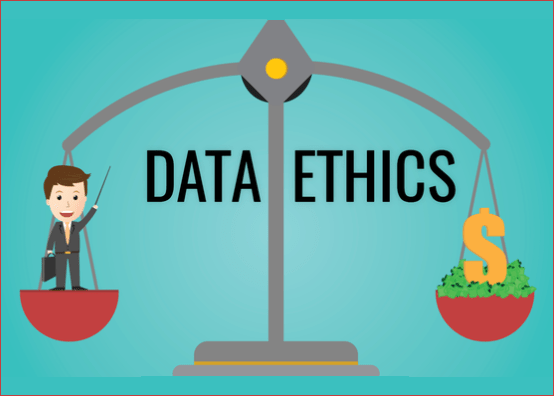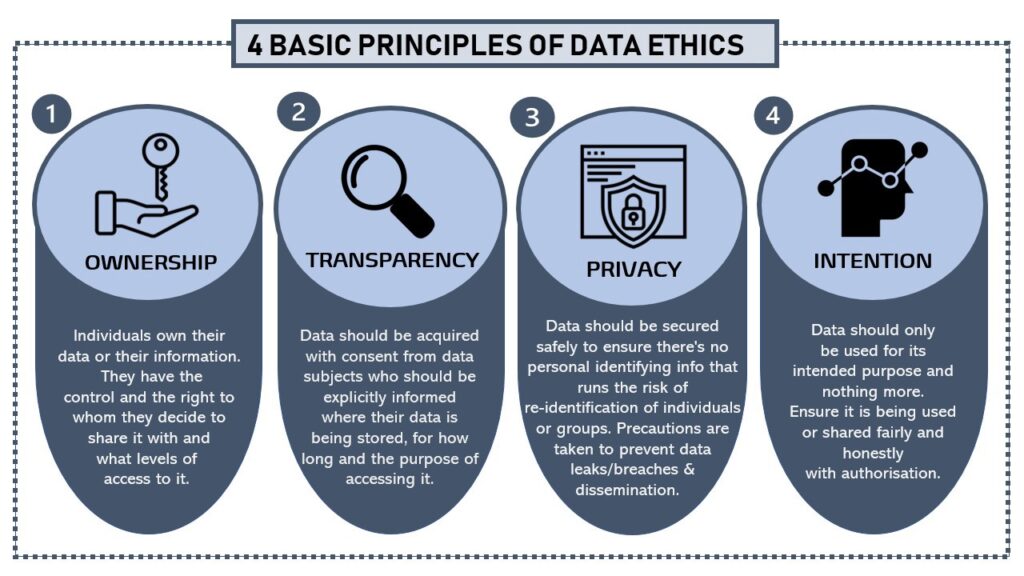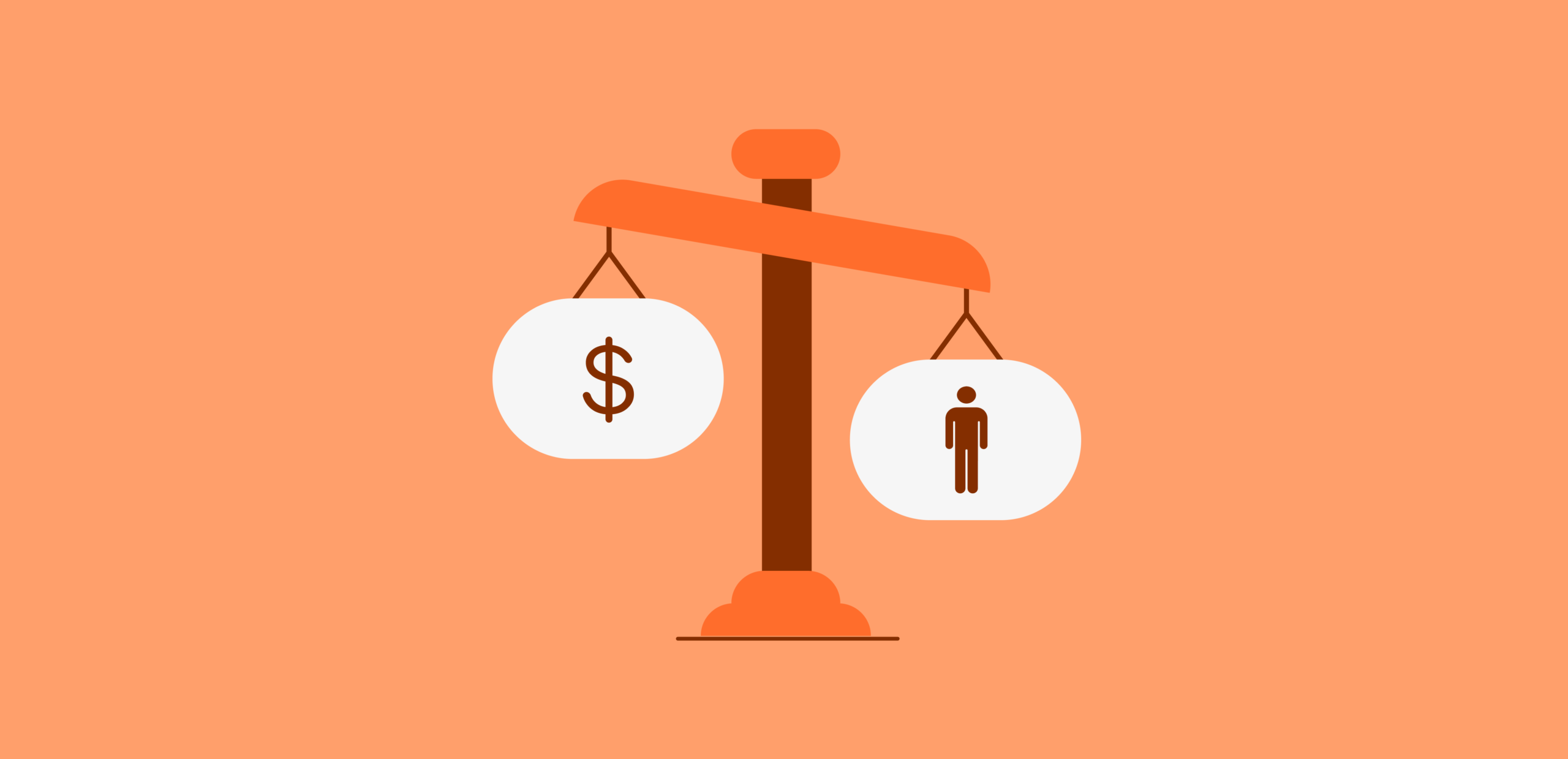By Ilias Siakaras,
When it comes to analyzing data, we cope with questions, challenges, and opportunities, but we have to rely on more than just our personal code of ethics to address them. We all have our own personal biases, not to mention subconscious biases, that make ethics even more difficult to navigate through. That is why we have data ethics, an important aspect of analytics that we will explore right here in this article; but first, let us go back to the general idea of ethics.
While a precise definition in philosophy is still being debated, one practical perspective is that ethics refers to well-founded principles of right and wrong that dictate what humans should do, generally in terms of rights, duties, societal advantages, fairness, or special virtues. Broadly speaking, data has standards to live up to, as well the whole approach to its morality refers to well-founded standards of right and wrong that dictate how data is collected, shared, and used.
Because the ability to collect, share, and use data in such large quantities is still relatively new, the rules that govern and regulate the process are still evolving, while governments around the world have recognized the critical importance of data privacy and have begun enacting data protection legislation to help protect people and their data. The GDPR* of the European Union was created to do just this.

*The General Data Protection Regulation (GDPR) is the world’s strongest privacy and security regulation, written and approved by the European Union (EU) with the goal of imposing duties on enterprises anywhere that target or collect data about EU citizens.
While policymakers continue their work, companies like Google have a responsibility to lead the effort and will do so in the same spirit we always have by offering products that make privacy a reality for everyone. The concept of data ethics and issues related to transparency and privacy are part of the process. Data ethics tries to get to the root of the accountability companies have in protecting and responsibly using the data they collect. There are lots of different aspects of data ethics, but we will cover six: ownership, transaction transparency, consent, currency, privacy, and openness.
First up is ownership, and this answers the question: who owns data? It is not the organization that invested time and money collecting, storing, processing, and analyzing it. Its individuals, who own the raw data, provide and have primary control over its usage and how it is processed and shared. Next, we have transaction transparency, which is the idea that all data processing activities and algorithms should be completely grasped by the individual who provides their data.

This is in response to concerns over data bias, which we discussed earlier, is a type of error that systematically skews results in a certain direction. Biased outcomes can lead to negative consequences. In order to avoid them, it is beneficial to provide transparent analysis, especially to the people who share their data. This lets people judge whether the outcome is fair and allows them to raise potential concerns. Now let us approach another aspect of data ethics: consent.
In fact, this is an individual’s right to know explicit details about how and why their data will be used before agreeing to provide it. They should know answers to questions like why is the data being collected? How will it be used? How long will it be stored? A dialogue between the individual supplying the data and the one seeking it is generally the best approach to obtaining consent. But with this “eternal” activity happening online these days, consent usually just looks like a “terms and conditions” checkbox with links to more details. Not everyone clicks through to read those details and consent is significant, since it prevents all populations from being unfairly targeted, which is a very big deal for marginalized groups who are often disproportionately misrepresented by biased data.
Last but not least, there is currency; hence, individuals should be aware of financial transactions resulting from the use of their personal data and the scale of these transactions. If your data is helping to fund a company’s efforts, you should know what those efforts are all about and be given the opportunity to opt out. Taking into account the aforementioned, the last two aspects of data ethics, privacy and openness, deserve their own spotlight in the whole data science.
References
- GDPR Data protection statement, fendahl.com, Available here
- 5 Principles of Data Ethics for Business, online.hbs.edu, Available here
- Luciano Floridi, Mariarosaria Taddeo, What is data ethics?, in Philosophical Transactions of the Royal Study A: Mathematical, Physical and Engineering Sciences, vol. 374, Published by Royal Society, 2016, royalsocietypublishing.org, Available here
- What Is Data Ethics?, cognizant.com, Available here




